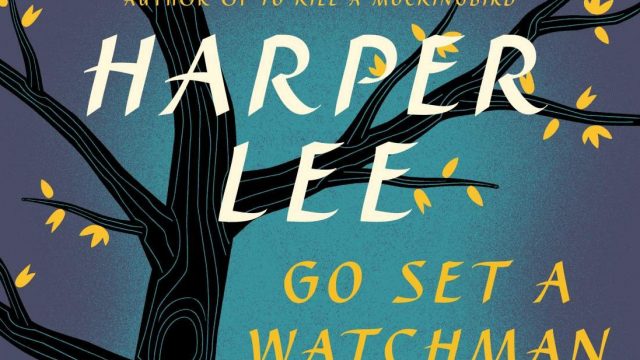Harper Lee's 'Go Set a Watchman' Is A Parable Of Acceptance In A Divided Political Era

Harper Lee’s new novel, Go Set a Watchman, is not a book for our time, nor was it intended to be given that it was initially a first draft of her To Kill a Mockingbird.
It’s not a tome for Americans who consume a regular diet of superhero movies where the distinction between good guys and villains is unambiguous. It won’t sit well with Americans who get their “news” fed to them by smarmy comedians who pretend they have all the answers, or cable news talking heads who focus on telling people what they want to hear.
Watchman is a complicated and audacious story that will no doubt make readers feel uncomfortable, because in it Lee reveals the warts on Atticus Finch, her most famous creation and one of history’s most beloved literary figures.
The Atticus of Mockingbird was the perfect father figure. Patient and wise and doting on his two precious-but-lovable children, he was also a civil rights hero, standing up to a lynch mob to protect a black defendant falsely accused of rape for what was, in reality, consensual sex. Atticus is so revered, so beloved and iconic, that he could almost be considered a sort of superhero himself.
That was groundbreaking stuff in 1960 when Mockingbird was published. In 2015’s hypersensitive atmosphere the book might have been derided as a “triggering” story that shames rape victims.
Watchman, on the other hand, shows another side of the sainted Atticus, and maybe some will find that triggering too.
The story begins with a grownup Scout Finch, now going by her given name Jean Louise, traveling back to Maycomb to visit Atticus, who is showing his age and struggling with arthritis. At first, the reader is treated to Lee’s delightfully down-home descriptions of the deep south community, complete with humorous anecdotes and folksy dialogue. But the reader is in for a shock, a twist that left this reader gasping after a figurative gut punch.
[mks_pullquote align=”right” width=”300″ size=”24″ bg_color=”#000000″ txt_color=”#ffffff”]America has divided itself into teams with little room for nuance, and now into that environment Harper Lee has injected Watchman, in which she takes a hero, a paragon of justice and humble wisdom of her own creation, and reveals him as a conservative proponent of states rights with deep reservations about the federal government forcing desegregation on the south.[/mks_pullquote]
Jean Louise discovers that her father, the principled and kind country lawyer, has taken up with the Citizens’ Councils formed in the south to protest the Brown vs. Board of Education desegregation ruling from the Supreme Court. She finds him meeting with Maycomb’s other leading citizens, in the very courtroom that was the setting for Atticus’ finest moment in Mockingbird, listening to a virulent racist speak about the racial inferiority of blacks.
“The one human being she had ever fully and wholeheartedly trusted had failed her; the only man she had ever known to whom she could point and say with expert knowledge, ‘He is a gentleman, in his heart he is a gentleman,’ had betrayed her, publicly, grossly, and shamelessly,” Lee writes.
No doubt those words represent what generations worth of Atticus fans have been feeling, all the more so because of the black-and-white era in which we live.
It was an interesting coincidence that Watchman was published amid heated national debate over the Confederate flag, stemming from an act of despicable violence against a black church in South Carolina. The incident prompted the South Carolina Legislature to finally end its defiant display of the flag on Capitol grounds, and gift shops at Civil War battlefields are being forced to expunge the flag as well.
Americans in 2015 are like that. You are either in favor of removing all displays of the Confederate flag, even those in contexts where the symbol is not intended as racism, or you are a bigot.
Fox News viewers think MSNBC fans are drooling idiots, and vice versa. Progressives view opposition to their preferred social programs as hatred of the poor while conservatives see support of those programs as the coddling of the lazy. Feminists believe you must support compulsory payments for birth control and abortions, even for those with religious objections, or you’re fighting a “war on women.”
America has divided itself into teams with little room for nuance, and now into that environment Harper Lee has injected Watchman, in which she takes a hero, a paragon of justice and humble wisdom of her own creation, and reveals him as a conservative proponent of states rights with deep reservations about the federal government forcing desegregation on the south.
That Atticus can be both the civil rights hero of Mockingbird and the opponent of federally mandated desegregation in Watchman has to be a difficult thing for many in this us-versus-them political age.
Yet that’s the very lesson Lee sets about teaching us, because ultimately Jean Louise Finch — still Scout to her father — decides she can still love Atticus after all, even if she despises his politics.
“I guess it’s like an airplane: they’re the drag and we’re the thrust, together we make the thing fly,” Scout says. “Too much of us and we’re nose-heavy, too much of them and we’re tail-heavy — it’s a matter of balance.”
In other words, people who disagree with our political outlooks can still be good people capable of courageous and heroic things.
Maybe this is a book for our time after all.




